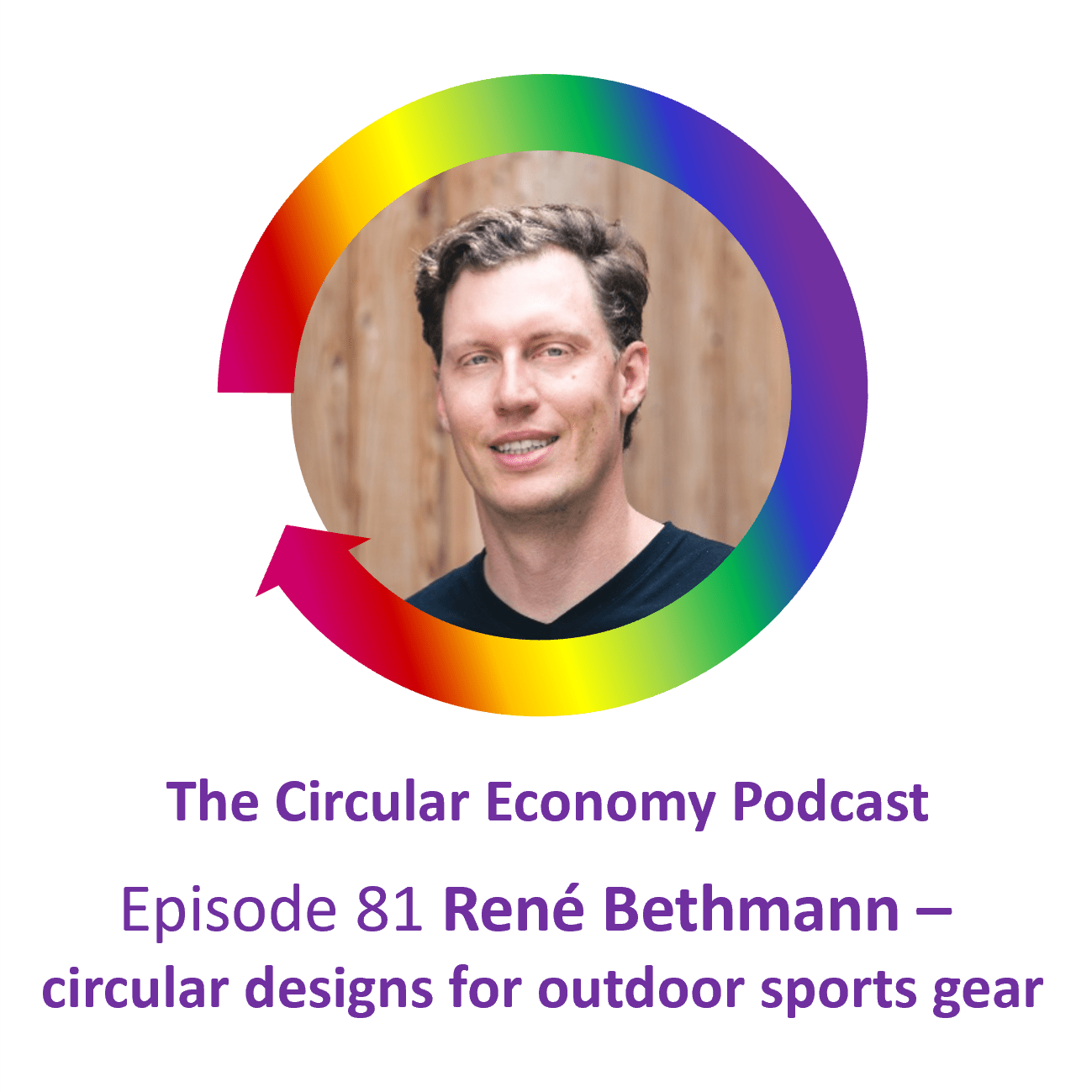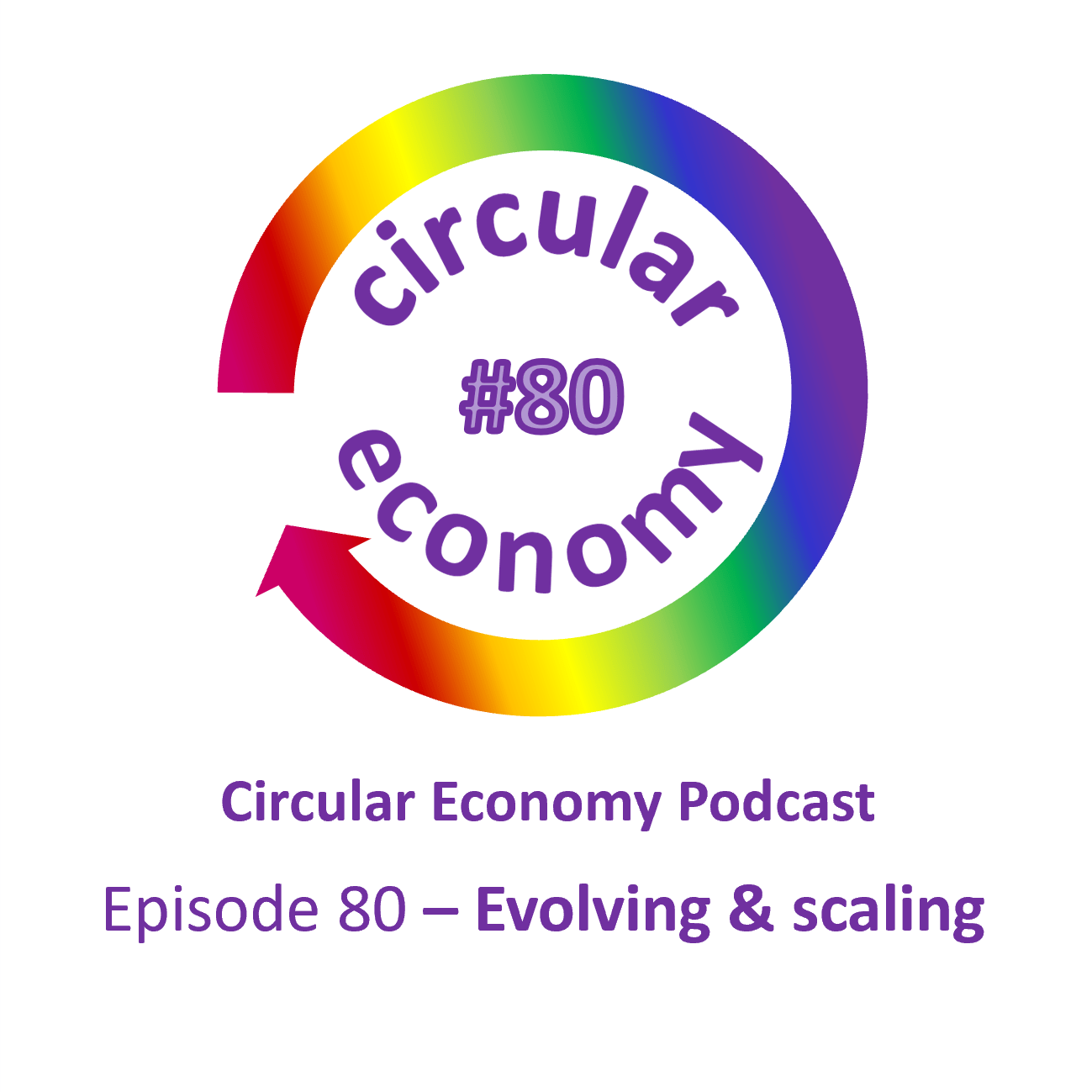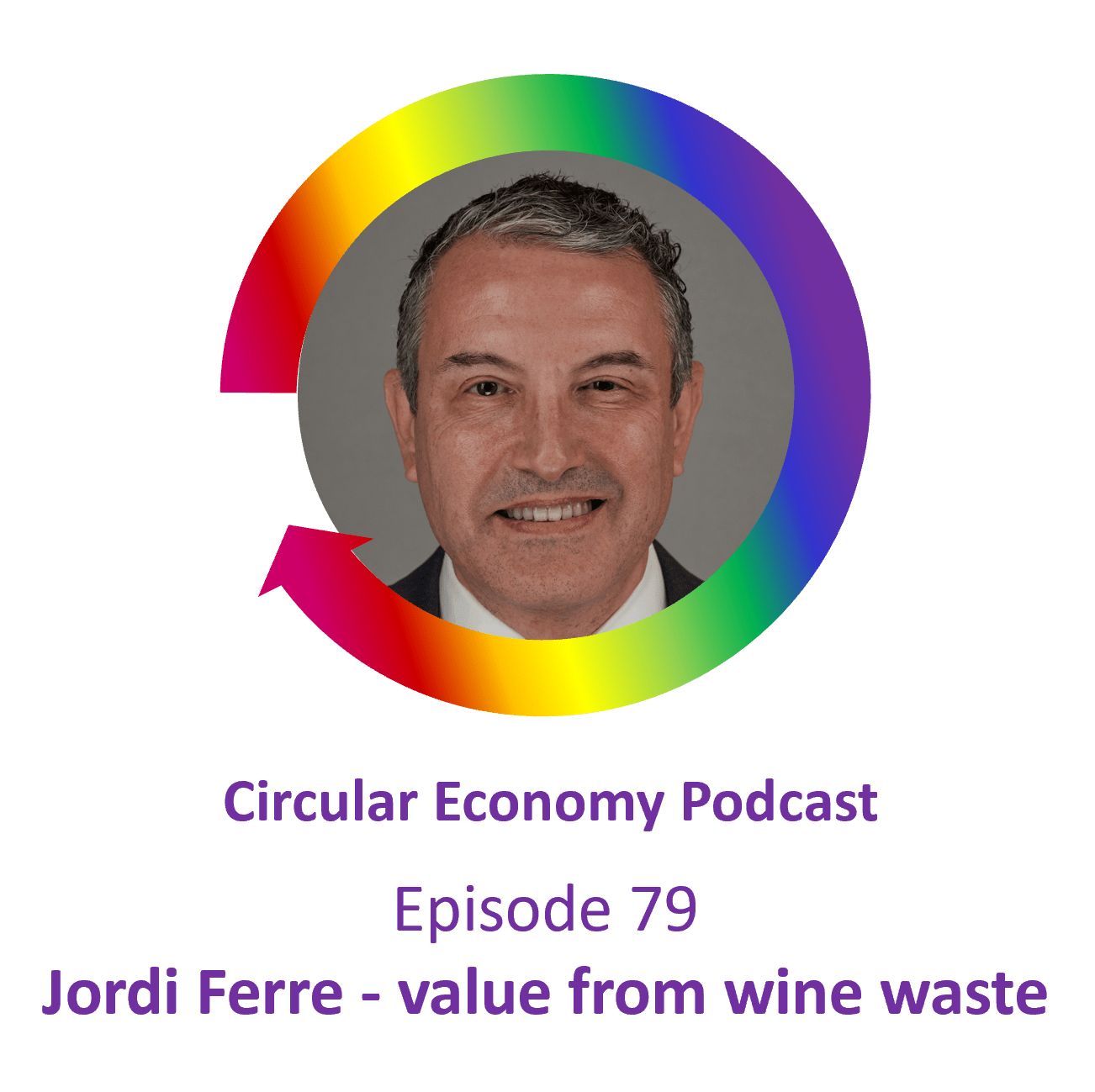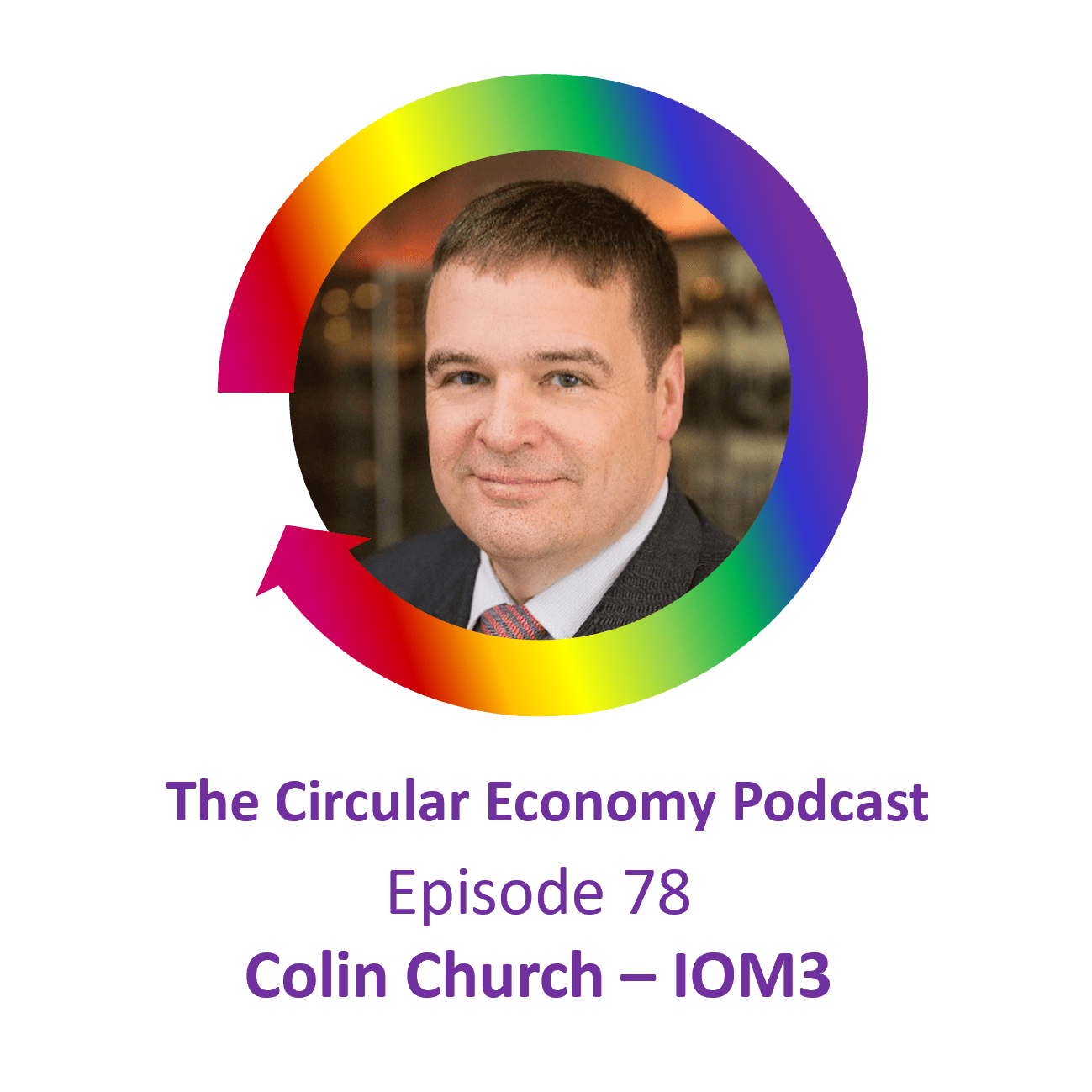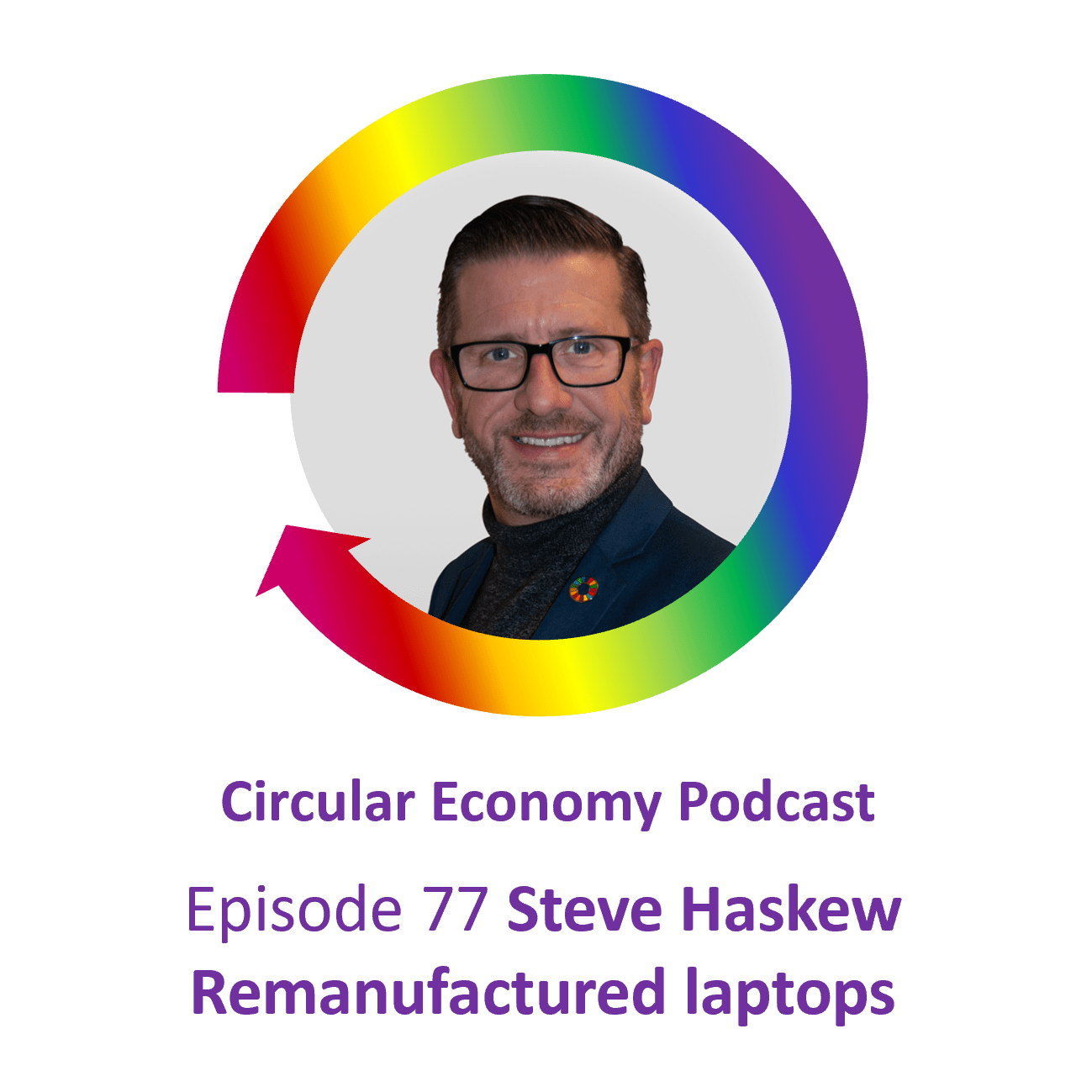Podcast: Play in new window | Download
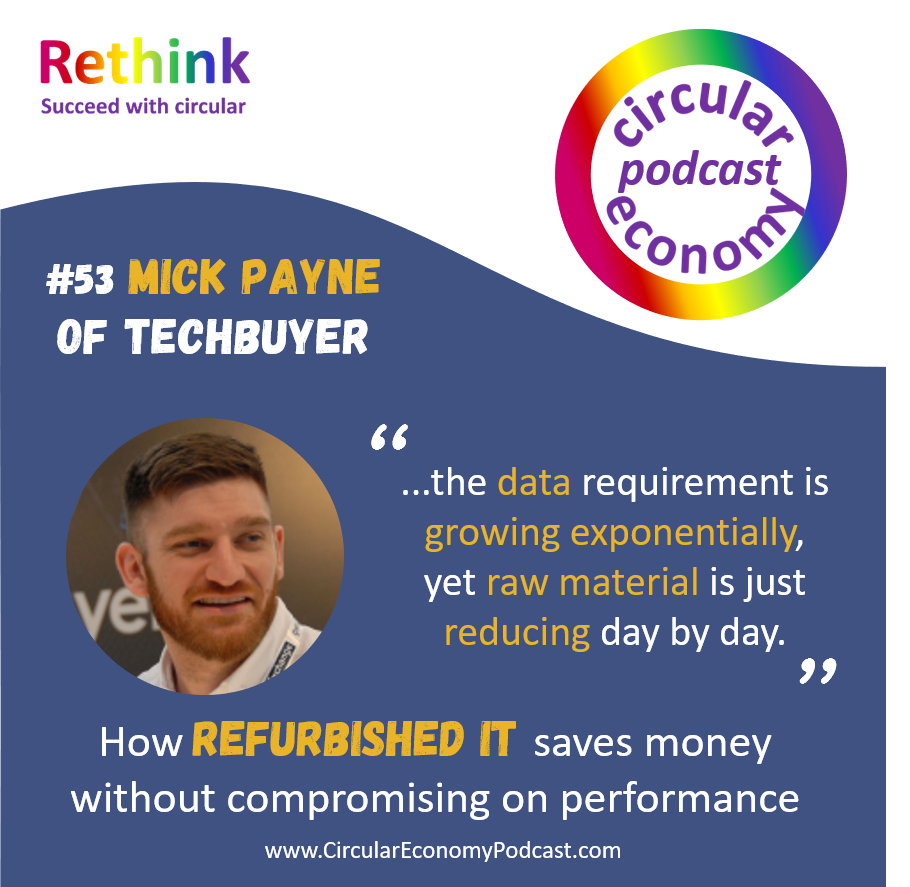
In this episode, Catherine Weetman talks to Mick Payne, Managing Director of the UK operations at Techbuyer.
Founded in 2005, Techbuyer has grown from a company run by just two people to a global organisation with multiple operations around the world. Techbuyer has many years of experience in buying used enterprise IT equipment and selling new and certified refurbished IT parts. Every year it configures over 3000 IT servers and data-erases over 10,000 hard drives each month. It’s worked with thousands of organisations worldwide and has partnerships with leading manufacturers including HPE, Dell and Lenovo.
Mick Payne believes the company flourishes through its hard working and determined staff, and we talk about Techbuyer’s refurbishment and remanufacturing services, how data is securely removed, and Techbuyer’s warranty and support.
Mick tells us about Techbuyer’s software, allowing customers to compare different servers in terms of performance and power requirements, which helps them assess their needs and costs over the product lifecycle. We also find out how things have changed since the Covid-19 pandemic, and how Mick sees the refurbished IT market evolving into the future.
Podcast host Catherine Weetman is a circular economy business advisor, workshop facilitator, speaker and writer. Her award-winning book: A Circular Economy Handbook: How to Build a More Resilient, Competitive and Sustainable Business includes lots of practical examples and tips on getting started. Catherine founded Rethink Global in 2013, to help businesses use circular, sustainable approaches to build a better business (and a better world).
Stay in touch for free insights and updates…
Read on for a summary of the podcast and links to the people, organisations and other resources we mention.
You can subscribe to the podcast series on iTunes, Google Podcasts, PlayerFM, Spotify, TuneIn, or search for “circular economy” in your favourite podcast app. Stay in touch to get free insights and updates, direct to your inbox…
Links we mention in the episode:
- Techbuyer’s website Techbuyer.com
- Techbuyer news https://www.yorkshiretimes.co.uk/article/Techbuyer-Partners-Digital-Access-For-All-Charity-Launch
- https://www.techbuyer.com/blog/techbuyer-launches-new-business-interact-for-low-carbon-energy-efficient-data-centres-uk
- https://www.techbuyer.com/blog/Finding-Answers-Techbuyer-Associate-Partner-CEDaCI
- https://www.techbuyer.com/blog/why-businesses-should-sign-up-to-the-un-global-goals%E2%80%93the-employee-edition
- LinkedIn IEMA Award Winner
About Mick Payne
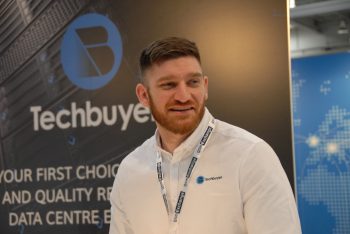
Mick Payne says: I joined Techbuyer in 2009 after moving to Harrogate from York where I grew up, to live with my (now) wife. Having no IT experience I took a warehouse role in a relatively small but successful company of 4. Since 2009, and as the business grew year on year, I have looked after the ever growing Operational and Purchasing departments for the business until 2019 when I became the Managing Director for the UK, primarily because the company owner, Kevin, moved to the USA.
About Techbuyer
Techbuyer helps businesses maximise their IT budgets by supplying cost-effective new and quality refurbished servers, storage, memory and networking equipment from over 150 brands including HPE, Dell, IBM and Cisco. Not only do we sell a large range of enterprise IT hardware, we also buy used parts and turn them into high quality refurbished IT equipment.
Interview Transcript
Provided by AI – add 3:05 mins for the finished episode
Catherine Weetman 00:00
Techbuyer helps businesses maximise their IT budgets by supplying cost effective new and quality refurbished servers, storage, memory and networking equipment from over 150 brands including HP enterprise, Dell, IBM, and Cisco. Mick Payne joined Techbuyer in 2009, with no IT experience, starting in a warehouse role when the company was a team of just four people. As the business expanded, Mick looks over looks after the ever growing operational and purchasing departments, Techbuyer expanded its operations to France, Germany, the USA, Australia and New Zealand. And in 2019, Mick was appointed as managing director for the UK business. Mick, welcome to the circular economy podcast.
Mick Payne 00:48
Good morning, Catherine.
Catherine Weetman 00:50
So it’s a nice sunny day here in in North Yorkshire and you’re not all that far from me about an hour further south. So I’m getting the sun shining with you as well.
Mick Payne 00:59
Yes, all good. was very nice yesterday as well. The barbecue was out for the first time this year.
Catherine Weetman 01:05
Oh, yes. Celebrating the the beginning of the end of lockdown. As we
Mick Payne 01:11
Yes, it. It was just a family one. But, yes, we can hopefully do something over the weekend with a friend or two as well.
Catherine Weetman 01:19
Yeah, yeah, good stuff. We’re looking forward to socialising in gardens. So let’s, let’s start with a bit of an overview of what Techbuyer does. explaining it from the point of view of those of his those of us who aren’t in it, and are not familiar with refurbishments and remanufacturing. How would you explain it to people?
Mick Payne 01:39
Yeah, sure. So predominantly, and traditionally the company is bought, refurbished and then sold second us enterprise IT equipment. So when I say enterprise IT equipment, I’m talking about servers, storage, and network and equipment, the infrastructure required for businesses. In the last few years, we’ve we’ve expanded continually, and we’ve looked to branch out, we also now buy and sell an awful lot of client equipment, which is laptops, desktops, tablets, and the like. And this is predominantly come about through another services that we added to our portfolio, which is what we call ITAD, which stands for IT Asset Disposition, which is effectively the secure sanitization and removal of IT assets from end users.
Catherine Weetman 02:27
So when you say secure sanitization, I’m guessing that means data removal and so on, so that people can be secure in the knowledge that none of their passwords, client data, all the stuff that needs to be protected, they can be secure in the knowledge that that’s not going to go with the machines to the next user.
Mick Payne 02:48
Yes, absolutely. So if we’re talking about the function of the business, specifically, you know, data is absolutely predominantly not the client’s number one concern. So the traditional business is quite often purchasing from other traders that have already addressed all these issues. However, the IT department is very much focused on providing this service to the clients. So it’s very heavily data focused, we are part of a group called ADISA, who provides stringent standards that we all adhere to the gold standard for ITAD in the UK. And they update and rewrite their standard every year or two to make sure we comply with everything necessary as guidelines change.
Catherine Weetman 03:30
Yeah, I can understand that. So if we’re talking about refurbished and remanufactured IT equipment, from the customer’s point of view, how does it compare to buying new? And what assurances Do they have about quality, durability and things like that?
Mick Payne 03:45
Yeah, so I think there’s there’s two parts to this question. It’s, first of all, an education to let people know that that the secondary market even exists, because a lot of people just just don’t know, I love to compare it to the car industry. Everyone knows that you can buy secondhand cars, and you can, you know, get a nearly new one for a lot, a lot of money off the price. And that’s almost how it works in the IoT world as well. So education is the first part, and then you’re trying to find someone that, you know, will do this to it to a high quality. So if we talk about the quality, and the reassurance, you know, one thing we do for end users is we provide a three year warranty with all of our goods, which is the same as buying new from direct from a vendor. So if you buy a Dell server office that’s three years old, your warranty will be effectively from each third year to its sixth year, which is exactly the same as the warranty you will receive with Dell, where you can provide on site support and as a company that is you know, has 200 staff, not 20,000 staff, we like to think we also provide a little bit more of a bespoke customer service. You know, it’s easy, you know, you You know, if you if you’re buying from us, you, you get allocated an account manager, so you always have a point of contact to call. There’s always someone to help.
Catherine Weetman 05:08
That sounds good. I know when I was looking at remanufactured stuff myself a while ago, somebody reminded me that Apple sell pre used stuff on their, their website. And so I had to look, and I was a bit shocked to find that it was, it wasn’t much of a discount, it was perhaps 80% of the cost of a new one. And then when I looked at the warranties, yes, it was the same as a new Apple, there was a tablet I was looking at, but that was only a year. And so that still felt like a bit of a risk. And I had to, I had to really dig around and couldn’t find what generation it was, I think that the tablet I was looking at that was the current one, the new one was a fourth generation by this stage. And in the end, I failed to find any info on what this this pre used one was, and had to email to find out that it was a first generation. So I was buying something that was four generations ago, we’re at only a 20% discount. And that’s kind of cool, that just doesn’t make sense. Perhaps they don’t actually want people to, to buy the used one.
Mick Payne 06:22
Well, you could easily come to that conclusion, I would like to suggest that, you know, in nine cases out of 10, you know, you get certainly get a lot better value than what you’ve just suggested you had an issue with there. There are strange instances in the in the second row market, where if there is no availability, things can get older equipment can be just as expensive as new equipment. But however, that is very much the minority. Traditionally speaking, you can have, you know, a three year old product that is absolutely perfect, it’s just that the standard warranty has with the manufacturer has run out. Businesses are used to replenishing their products, and you know, refreshing their infrastructure every three years, because it’s just what they’ve done is not because it’s broken. And so the cycle continues. And what you end up with is, you know, nine times out of 10 is a much cheaper product, which is absolutely, you know, perfect for your needs.
Catherine Weetman 07:21
Yeah. So it’s, it’s cheaper, and you’ve got, you know, brilliant warranty, and so on standing behind it. How does the performance compare, you know, the guests, the perception from people is that Moore’s law and everything that it processing speeds and other performance aspects, keep on improving at a pace. So if you are going to be in the market for a two or three year old piece of kit, are you compromising on performance?
Mick Payne 07:48
No, I’m quite interested in that we actually have a sister company, now called Interact, which provides software that actually compares different servers, and it shows you the power output and the performance. So you can actually weigh up exactly how these things compare for you from a compute perspective, and also from if you were talking about large scale, a power perspective. So we can compare accurately, which is really, really useful. Going back before, before the days of interacts, however, it was more done on a, you know, a client specific client basis. So you can just recall, if we go talk through your needs correctly, then we will know exactly what you require. And we can advise what what will be best, it’s just that education of which will work better for you. And sometimes it’s the mid range, mid range current generation, that is still second user, but it’s just the most current generation, that would actually be best, because for whatever reason, in the markets, that’s the best value for you. Or it could be, actually the generation before is half the price at the moment, because of the supply and demand. So we would advise us this, again, both come with the same warranty. So it really makes no difference here nor there in that respect. But we advise either way,
Catherine Weetman 09:10
so that the tool allows you to compare things like the processing power, and so on, and whether it’s going to meet your needs from a storage and other point of view, but but also, are you saying when you say the power? Do you mean that the kind of processing power of the kids or do you mean the energy usage?
Mick Payne 09:33
So yeah, it’s a it shows you the compute So effectively, how well it’s going to work for your needs, but also the electrical output. So if we’ve considered infrastructure on a grand scale, if you wanted to buy 1000 servers, the amount of electric to actually use those issues is significant. So if we can find you a solution that uses half the half the power but with the same compute, you may not save at the front end. On the, you know, the procurement cost, but actually over three years, you know, the lifecycle of the equipment you’re gonna use, or five years or have a longer use it, you know, you could be saving a huge amount of money. So it brings all that together.
Catherine Weetman 10:13
Yeah. And of course, it’s not just the savings on the energy bills is it’s the, it’s the carbon that you’re consuming over those three years as well. And more companies will be absolutely focusing in on, you know, how do we get to zero carbon? We know we’ve only got 10 years to, to do that. So is going into into conversations that you’re having with customers, is that starting to come to the fore now?
Mick Payne 10:38
I think it has for the last three years, we are really quite significantly, people do genuinely want to, you know, be part of being green. Now. I think that, you know, the UK has traditionally been behind other countries with recycling, and, you know, all this sort of thing. And they probably are still a bit behind other European countries now, or they certainly are. However, there’s definitely been a sort Yeah, I’ve seen quite a lot of sort of swings in mentality in the last 12 years. However, do you know, the biggest thing I would suggest in the last three years has has been the whole sustainability issue and is becoming more and more clear that just mining more and more and more to provide more and more new isn’t going to work forever? Yeah, especially as data is becoming data requirement has grown so exponentially, it’s something we’ll have to come to a head at some point. And the reason I talked about the education of the secondary, you know, the secondary market, at the beginning is because people would be happy to use refurbished goods, you know, with it with a three year warranty, but quite often, they just don’t know, there’s a there’s a market that exists in the first place.
Catherine Weetman 11:53
It’s interesting, isn’t it, that the, you know, it’s the marketing power of, of the, the linear economy, if you like, you know, keeping convincing people that they need to need to have the latest and buy new and so on. But we’re all starting to realise that there’s a really big footprint behind everything that we’re buying, not not just tech, but everything. And people I think are starting to get more concerned, not just about the environmental footprint, but about the social aspects. And with tech, you know, there’s all sorts of issues around conflict minerals, and the working conditions of overseas, you know, manufacturers and components, assemblers and so on. And so, you know, people are wanting to start taking more care of their upstream supply chain and knowing what they’re getting and where it’s from.
Mick Payne 12:46
Yeah, I mean, absolutely, I mean, the big manufacturer have really got, you know, big decisions to make moving forwards. But then also their model is, you know, where we’re turning over billions of dollars selling new things, to all of a sudden turn around and sell not new things is a completely foreign concept and not worthy experiences. So yeah, it’s very difficult, you know, I think that innovation will have to play a big part in all this, you know, that there are some instances where second user equipment is not an option, because the technology has not come down to the second use yet. So that is where, you know, new is a requirements, you know, where new technology is absolutely necessary. So we have a side company that is a, you know, small part of the business, but still is a necessity for some of our customers where we will have vendor partnerships, where if absolutely refurbished isn’t an option, they can still get the new equipment. Because ultimately, you know, there are solutions out there that just can’t be sorted out with, you know, with a five year server or a three year server.
Catherine Weetman 13:54
Yeah. And even going back to, you know, hesitate to mentioned Apple again, in case it sounds like I’m putting them on a pedestal as leaders in the circular economy. They have got a circular economy, ambition, but there’s no there’s no date on it. But I noticed that they’re developing their robots, they’re called Daisy, the robots have started with one I think they’ve got a dozen or so now. And they’re working on extracting the most valuable raw materials from end of life, iPhones to go back into new iPhones and tablets and so on. So, even if even if we have to keep making new products, because of the technological advances, we should at least be recycling the you know, the precious materials that that go back in
Mick Payne 14:42
Yeah – the raw raw material is that is a really big part of the problem. I mean, it just will not that the raw material is not exponentially growing like the data requirement is exponentially growing. The raw material is just reducing day by day so it’s it’s a huge challenge.
Catherine Weetman 15:00
The tech by a website says you’ve got over 50,000 square feet of warehousing. And over 20 IT specialists on the sales team, all based in Harrogate in the UK. And you’re configuring over 3000 servers every year, data raising over 10,000 hard drives every month. So what kind of operational challenges does that throw up?
Mick Payne 15:20
The two that would jump out at me straight away, you know, the first one is always scaling. So we’re, you know, the business has been fortunately, it’s always grown each year that I’ve been here. So it’s not just consolidating on what we know, is also increasing scale , or, you know, each moment. So, for instance, the building we’re currently in, we’ve been in four and a half years, we’ve had to build a full second floor in the warehouse, just because of the you know, the growth, the employees in the UK has gone from 50 to 150. In that time, we’ve had to take on a secondary facility, that’s, you know, across the road, again, and these things are just sort of a building, we’re building the building. So first operational challenges to build to scale, which then involve also involves, you know, training new staff, again, we like to work to a really high standard, we, you know, we talk about, we want to give a three year warranty and, you know, promote quality in the secondary market, we need people to be bothered to be able to do that, you know, we need them to be able to care and make sure things don’t slip through the net. So training stuff is is difficult. And then the secondary part of it would be we’re dealing with ever changing technology. So that’s, you know, again, adds complexity to what we’re doing 3000 server builds this year will not be the same as you know, 2500, last year, or however many it was, you know, so it’s always it’s always changing, where, you know, we’re always looking to scale. And what we do isn’t isn’t easy to begin with, you know, we’re removing data. You know, we’re checking for functionality, we’re making sure everything fits client requirements. There’s, you know, many, many stages, for instance, you know, every server bill, we have a 25 point checklist to tick off. So that’s on every single server, there’s lots of complexity involved, and trying to try and grow. Whilst you know, keeping quality high is always going to be a challenge.
Catherine Weetman 17:22
But it’s great to think that a lot of the circular economy jobs like remanufacturing, and refurbishments, and so on, do require human intervention, you know, you can automate some of it, but it’s great that it’s, you know, it’s providing jobs. And you’ve said you believe the company flourishes through its hardworking and determined staff, and that, then they’re delivering a valuable and sustainable offering to all of the tech buyer customers. Do you think that’s because you’re recruiting certain kinds of people? Or is it because staff become highly engaged in helping reuse tech products, you know, feeling that that’s more purposeful, and kind of, you know, more rewarding than contributing to the massive problems of E waste?
Mick Payne 18:06
I would like to say, both, you know, we obviously try our very best to recruit well recruit people that, you know, just want to do well, we want to be part of something that, you know, they want, you know, that they can be proud of, you know, so first and foremost, yeah, we would like to say we try and do that, but, you know, like, anyone, we don’t get it right, every single time. Where I think we do well, is, we, we get people involved in things, we give everyone their own little piece to work on to improve, we give a lot of sort of automation to them, you know, we promote ideas, we, you know, if you want to change something, please speak up, it doesn’t matter what position you’re in, you know, bring your ideas to the table or appreciated, you know, none are ridiculed. So I think that sort of environment, you know, really helps, the fact that we can turn around and say, you know, we’re not part of the problem, we’re part of the solution, you know, is great. I think then within that, you know, we really have to make sure that people do feel a, you know, a genuine part of it themselves. And I think that’s, that’s a really, really important part for me.
Catherine Weetman 19:14
Yeah, more and more companies are finding that aren’t there that, you know, people want to work for a business that’s doing the right thing for the world. And that even no matter what job you’re doing, within the company, that you’re helping be part of the solution, not part of the problem. So what about customers? Does does this kind of circular economy business have different relationships and supports from support from its suppliers and customers?
Mick Payne 19:42
Good question. You know, our customer base is incredibly varied. You know, we deal with end user customers, and we deal with trade customers. Now predominantly, we’re a trade business. It’s very interesting to see how different companies have a similar stature have different attitudes towards refurb, especially in the infrastructure world, and there’s no, there’s no real distinct pattern, you know, some companies are very open to change, and they’re like, this sounds great. And then some are built upon, you know, enormous amounts of red tape, which means that, you know, whilst, you know, the one department wants to change, and that’s great, and that’s the other, you know, ultimately, you know, has to go through an awful lot of people, and it’s a lot, it’s a lot trickier. So, again, it boils down for, for us, to, to educate the customer. And that might be having to educate five different departments of the same customer, if they’re big enough, but it boils down to education, and then actually, you know, delivering on what you’re saying and delivering the, you know, the quality and the value.
Catherine Weetman 20:45
And are you finding that the sustainability teams in your customers businesses, are they starting to get involved? Now,
Mick Payne 20:52
there’s certainly more say, than there is that that was five years ago, I do also believe, and, you know, I’ve seen with my own eyes, that a lot of these big big companies, you know, they are looking to genuinely change as well, is obviously very, very difficult for them, because they spent the last, you know, 50, or however many years, you know, manufacturing and building new, but I do genuinely see a lot of good intentions towards moving towards, you know, more circular, so when something is put in front of them, it automatically, you know, it has more appeal to them.
Catherine Weetman 21:25
Yeah, I don’t know, if you think about, you know, you gave the example of the automotive industry and how we buy cars earlier, then that model has been working for generations, hasn’t it. And it can be a, you know, a network of dealers kind of doing the, the maintenance, and the servicing, and so on. And for a lot of components, there are remanufacturers, all supplying, you know, the brands, light ratio, and so on. So there’s a kind of, there’s a complete ecosystem around, keeping the car going beyond its first ownership cycle,
Mick Payne 22:01
is exactly the same principle as the secondary it market, some people are happy to buy one year old to save money, and they’ll take the two years warranty rather than the three. And then some people don’t want to car as soon as it’s run out of warranty, they want to move on to the latest and greatest, you know, maybe that’s, for whatever reason, you know, I won’t judge, and some people are more than happy to buy a car and say, you know, this is going to be my 10 year car. And I’m going to look after it. And once the you know, the warranty is run out, I’m not going to get, you know, a third pie warranty. And, you know, I’ll always go to the main dealers to get it serviced, or you know, everyone has their own choices. With that in the IT market is really a case of, you have to explain that there’s actually a market there, we take it for granted in the car industry, there’s a second car market, there’s third party mechanics, there’s third pie warranties. There’s all of this in it, it’s just people aren’t aware.
Catherine Weetman 22:52
Yeah, and I think that’ll evolve across all sorts of sectors. Patagonia did an article this week, the first time I’ve seen them talk about circularity, even though they’re the most circular economy business I’ve come across, and they’ve been doing it for, you know, for decades. So now they’ve actually started talking about circular. And they were seeing they, they were saying that’s the way that you know, clothing and outdoor equipment should go is the way of the secondhand car market that, you know, there’s a, you might buy new or you might buy, pre used or pre loved, but the brand should should be standing behind that it shouldn’t be a kind of, you know, free for all and take the chances as to whether this when you when you buy this, you know, Patagonia pullover from eBay, and it arrives and it’s you know, it shrunk or something you don’t you don’t want to be taking that risk. I think you know, that that kind of movement needs to happen across every sector, doesn’t it? And and if it’s worked for so long for cars, why can’t it work for lots of other things?
Mick Payne 23:54
Yeah, I mean, fortunately, the it market has a little bit, especially the infrastructure market, you know, servers storage network, it has a little bit of advantage over closed, because we buy a server and we put it in a room, and we don’t look at it every every week, and so we don’t have to deal with the vanity of human being. Whereas we were close. I imagine that’s a little bit of a larger challenge. So you know, we’re fortunate in that respect, we don’t actually have to deal with that. That side of things. Yeah. Well, it’s easier to it’s easier to it’s easier to persuade people should we say, in our sector than so?
Catherine Weetman 24:29
Yes. I agree. I agree. And, yeah, and I think that’s, that’s the challenge isn’t it is to kind of overcome that, that mindset that we’ve got for you know, being part of the, the tribe and, you know, wearing and using things that that make us part of that, that group. So when it comes to coming back to, to it, what’s happened to the market for refurbished it during the pandemic, and and how do you see that evolving? into the future.
Mick Payne 25:02
Well, you know, from a Techbuyer standpoint, and I do feel almost guilty saying this will, you know, the company’s done well, during during the pandemic, we’ve continued to grow. And that’s because there’s been more demand for secondary equipment Now, part of the demand, especially in March 2020, you know, was huge demand in laptops. And it was quite interesting. What actually happened was, I think an awful lot of people wanted new laptops, however, the new laptops became unavailable very quickly, because demand went through the roof, there was no supply. Right? Okay, what do we do next is no new laptops. So then the secondary market became, you know, was looked at by more and more people all of a sudden. So we saw a huge spike in March 2020. For laptops absolutely enormous. went absolutely through the roof. So I think that then open people’s eyes are, there’s a secondary, you know, there’s an education piece there all of a sudden is forced upon them. We’ve just found out, we can use refurbish instead. And then everyone sees that, it’s absolutely fine. And now I’ve turned it on, it’s exactly the same as the new one, I was going to pull out the box. So the secondary piece was, budgets were stretch. So as soon as budgets get stretched as soon as we had this amount of money for this project, but now we actually only have half, how can we still complete the project? And you know, we’ve only got 60, or 50, or 70% of the the you know, the funds? You know, you look to be a bit more creative. Again, it points towards the secondary market.
Catherine Weetman 26:38
Yeah, it’s been, it’s been tough, tough for a lot of industries and a lot of people. And, you know, I think it’s, it’s just going to be one of those, you know, big shocks, isn’t it that forces forces changes that might have happened over a few decades anyway, but forces them to happen more quickly. And hopefully, you know, some of the because lots of companies will have suddenly experienced, or, you know, become aware of the market for refurbished and remanufactured, not just it, but other things, hopefully, that switch the radar on for different ways of working in the future. And hopefully, also, the government seen the potential for doing that as part of its industrial strategy. You know, the whole thing about keeping things local. And once we’ve got the valuable materials here, whether that’s in the form of existing equipment that can be reused and recycled, or made into something else, then we kind of need to need to keep that as an asset. Here, instead of exporting the waste elsewhere and having to re import it as new kit.
Mick Payne 27:48
Yeah, I think we lost, you know, it’s easy to say circular, okay, it goes one way it comes back, and it goes around, but within that there’s so there’s so many, you know, individual pieces involved, it becomes hugely complex.
Catherine Weetman 28:02
Yeah, it’s a really complicated network, isn’t it when you try and draw it out? So make who would you recommend as a future guest for the programme?
Mick Payne 28:10
I think especially when we’re talking about circularity, our sustainability lead would be the optimum person in my eyes, you know, Astrid Wynne, she sits on a lot of panels now. You know, she’s a great talker, certainly a lot better than me. Yeah, I think she I think she’d be cracking to for people to listen to, you know, she, she’s really on board with the circularity situation. And, you know, she’s, she’s making some really big waves actually, in the industry now. And it’s, you know, it’s great to see.
Catherine Weetman 28:36
Thank you. Yeah, I’ve seen quite a bit of the things that Astrid is posting about on LinkedIn. And it looks like she’s involved in all sorts of research initiatives, and, you know, sector wide initiatives. So it’ll be great to get her perspective on, you know, the kind of cross industry picture and some of the challenges around taken and kind of, you know, helping build. You mentioned the tool, didn’t you? I think she was was she involved in the building the Interact tool?
Mick Payne 29:05
I couldn’t do it justice was how much she’s actually involved in. So I will, you know, I will leave that to her to explain further.
Catherine Weetman 29:11
Okay. Thanks, Mick. And how can people find out more and get in touch with you and the Techbuyer team?
Mick Payne 29:20
The easiest way I would suggest would just be to give us a call. You know, we’re, you know, I know, we’re just talking about the home office, but you know, we’re also in France, and Germany and America and Australia, New Zealand, you know, everywhere. So nice and easy. Just give us a call or go to the website, which is Techbuyer.com. You can email call. We’re all available. Someone’s always there at the end of the phone.
Catherine Weetman 29:43
Great. So I’ll put that website address in the show notes. So people can find out more. So that’s circulareconomypodcast.com and Mick, Thanks very much for joining me this morning.
Mick Payne 29:55
Well, great. Thank you, Catherine for you know, allowing me here and you know, I think if you could I speak to Astrid I think that would be cracking follow up it would be really interesting.
Catherine Weetman 30:04
Yeah, I’m looking forward to that. Thanks, Mick.
Mick Payne 30:06
Brilliant. Thank you.
Want to find out more about the circular economy?
If you’d like to learn more about the circular economy and how it could help your business, why not listen to Episode 1, or read our guide: What is the Circular Economy?
To go deeper, you could buy Catherine’s book, A Circular Economy Handbook: How to Build a More Resilient, Competitive and Sustainable Business. This comprehensive guide uses a bottom-up, practical approach. It includes lots of real examples from around the world, to help you really ‘get’ the circular economy. Even better, you’ll be inspired with ideas to make your own business more competitive, resilient and sustainable.
Please let us know what you think of the podcast – and we’d love it if you could leave us a review on iTunes, or wherever you find your podcasts. Or send us an email…
Podcast music
Thanks to Belinda O’Hooley and Heidi Tidow, otherwise known as the brilliant, inventive and generous folk duo, O’Hooley & Tidow for allowing me to use the instrumentals from the live version of Summat’s Brewin’ as music for the podcast. You can find the whole track (inspired by the Copper Family song “Oh Good Ale”) on their album, also called Summat’s Brewin’. Or, follow them on Twitter.
